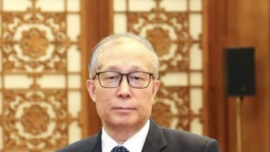
Rui Filipe Oliveira
Partner, MdME
Diversification has taken centre stage in Macau’s current political and economic agenda. The renewed push for diversification entails not only the development of emerging new industries that may balance the weight of gaming and tourism in Macau’s economy, but also a quality upgrade of the existing ones, particularly the largely dominant gaming industry. The direction is clear: to become less gambling-centred and embrace a more leisure-oriented, internationally-focused approach as embodied in the ‘One Centre One Platform, One Base’ motto.
The room for other industries to grow has been scarce. This is mostly due to the limited resources available and a lack of infrastructure, including, in some areas, legal infrastructure. Several key industries are being cultivated for growth, one of them being financial services, and the new Macau Trust Law is the most recent development to boost the sector.
Trusts are well-known instruments in common law systems and have been progressively adopted by civil law systems, mostly to enhance their international competitiveness as business platforms. Their introduction to the Macau legal system is no exception to this purpose. However, one of the main aspects leading into the success of trusts as property management instruments is their specific tax treatment. Is therefore only surprising that Macau Trust Law does not include any specific provisions to address the tax issues arising out of the use of trusts; nor is the treatment of such issues provided elsewhere within Macau’s legal framework.
It is important to note that the specific tax treatment of trusts does mean an exceptional tax scheme that favours tax evasion or abusive tax planning, as is often misperceived. The taxation of trusts implies only that the existing tax principles and rules treat the trust mechanism fairly, according to its nature and structure. To do so, it is important to understand the structure involving the setting up, use, and winding up of a trust and the key tax issues involved.
The “trust” is not a separate legal entity. Instead, the trustee will become the legal owner of the trust assets. As such, at its inception, the trustor will transfer the trust assets to the trustee, which will hold and control such assets. Where such a transfer involves the transfer of real estate or other assets that trigger any transfer tax/stamp duty tax, such a tax will be levied. However, should such property be transferred to the trust beneficiaries, the same tax will be levied again (except when the trustee is also the beneficiary).
This creates tax inefficiencies. The transfer of the trust assets to the trustee is merely instrumental, and its ownership by the trustee does not form the typical economic basis for taxation of property transfers. In fact, the trust assets are separate from the trustee’s own assets (as well as from other assets held on trust for different beneficiaries); significantly, these assets are held exclusively to the benefit of the beneficiaries or for other purposes established in the trust deed. As such, the process of transferring the property from the trustor to the beneficiaries should only be subject to taxation once, either at the inception of the trust or at the outset, when the property is transferred to the beneficiaries. Of course, other considerations have to be anticipated in order to ensure the trust mechanism is not abusively used to evade the transfer/stamp duty tax, such as, in certain cases, the transfer of the trust benefit. However, until this issue is properly addressed, the absence of specific tax rules will render the trust mechanism impractical for holding this type of property, namely real estate assets.
On the other hand, income may be derived from certain assets within the trust estate. Formally, such income will be received by the trustee, but again, such income should not be considered as part of the trustee’s own taxable income. It is clear that any taxable income generated from the trust assets should be taxable separately from the trustee’s other income as well as from any other income generated by other trust estates held by the same trustee. Two options are available: to levy any income tax separately over the trust estate or upon its distribution to the beneficiaries. Mechanisms to avoid economic double taxation should also be considered to ensure that the income generated from the trust assets is taxed only once. The absence of specific rules creates room for economic double taxation of income, which is not only wrong from a tax standpoint but also renders the Macau trusts inefficient and uncompetitive when compared to other legal systems.
It seems obvious that this was an oversight and that this matter should have been dealt with in the Macau Trust Law. The new Law has drawn a lot of attention among local financial institutions and abroad, but the absence of a specific tax regime for trusts significantly hinders its practical use of. This is a fundamental issue that requires immediate attention from the Government and Legislative Assembly, if needed, by means of transitory provisions in the Macau budget law, until a holistic regime can be permanently poured into the Trust Law. This issue needs to be addressed while interest remains high, or Macau may lose the momentum and, with it, an excellent opportunity to have a relevant role as an asset management hub.
























